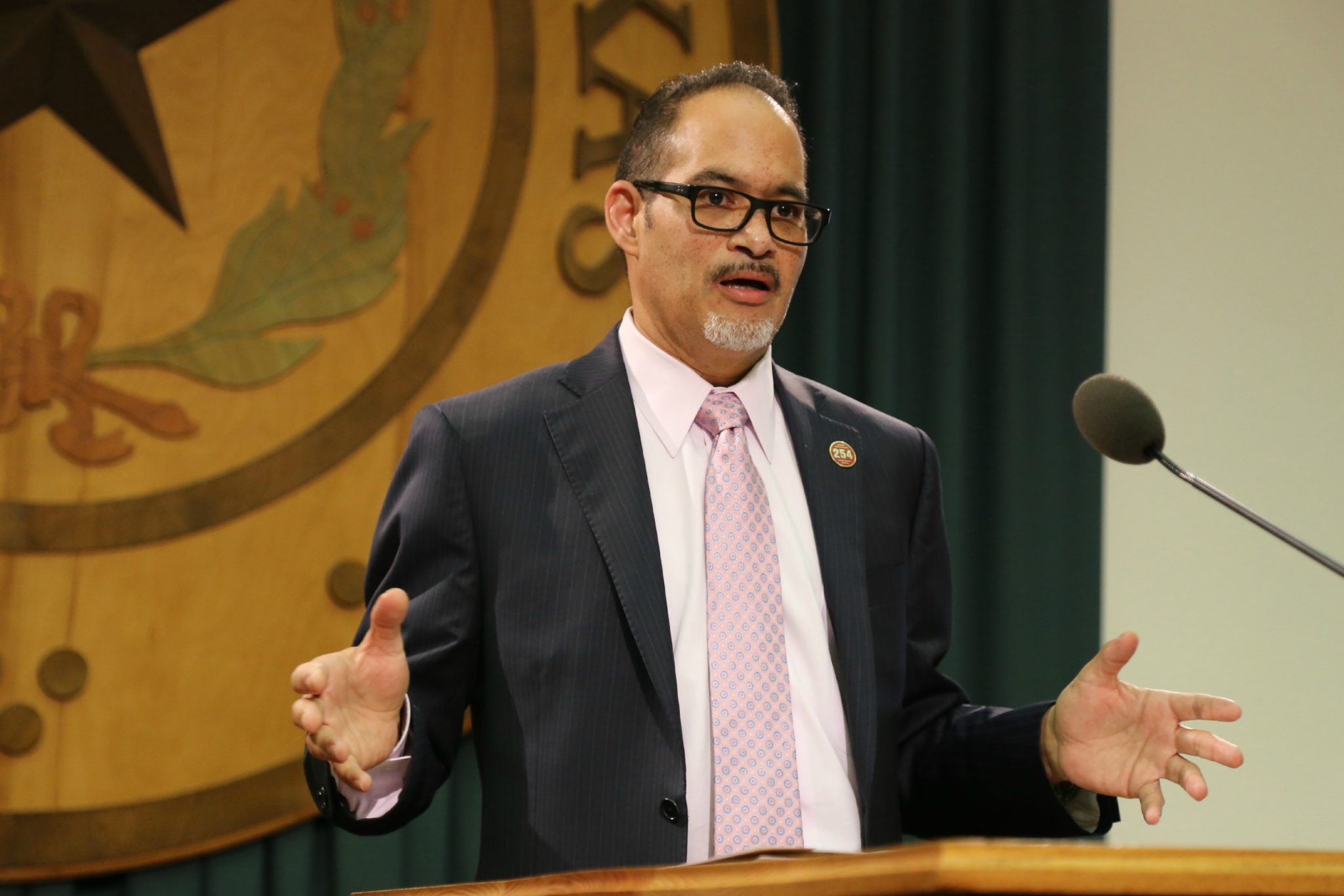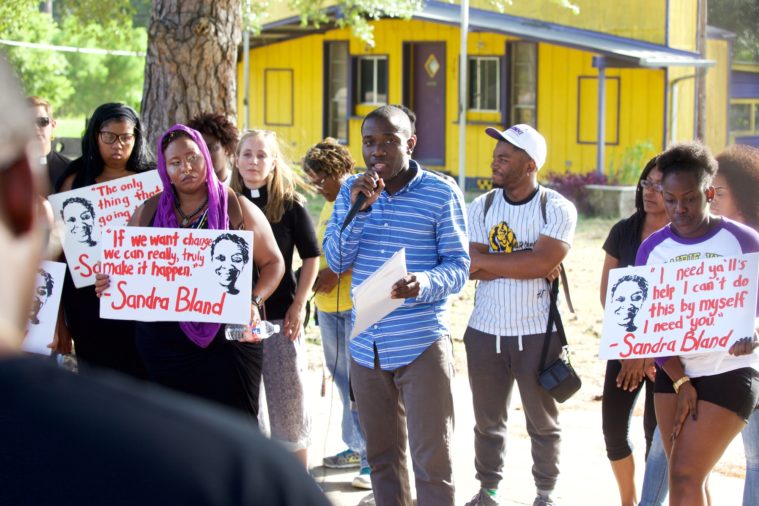
Lege Hearing Gets Tense Over Racial Profiling
Houston Democrat Garnet Coleman plans to file the Sandra Bland Act to promote statewide law enforcement reforms.


House Democrats sparred with state law enforcement officials over questions of racial profiling Tuesday at a sometimes contentious hearing. It was the latest in a series of House County Affairs Committee hearings on policing in advance of the 2017 legislative session. Committee chair Garnet Coleman, a Houston Democrat and veteran lawmaker, has announced he plans to file the Sandra Bland Act, named for the Prairie View A&M University alum who died in the Waller County Jail after a traffic stop in 2015.
“There are solutions to the criminal justice issues that have come up because of Sandra Bland,” Coleman told the Observer, “and they should be on the front burner of the Legislature this coming session.”
Lawmakers heard testimony from the co-author of a 2015 University of North Carolina study on traffic stops that found that black drivers in Texas are 59 percent more likely than white drivers to be searched during Texas Department of Public Safety traffic stops. When state Representative Jonathan Stickland, R-Bedford, asked if researcher Frank Baumgartner was accusing DPS of racial profiling, Baumgartner responded cautiously.
“There is a robust disparity between the likelihood that a white driver and a black driver will be searched even when you control for variables other than race,” he said.
Lawmakers themselves were also reluctant to use the term “racial profiling” during the hearing, due in part to a Texas statute that offers a narrow legal definition of the term.
“The statute needs to be changed,” said Coleman, “because there are disparities that we can’t currently call ‘racial profiling’ that maybe we should be able to.”
DPS director Steve McCraw denied that his agency engages in profiling of any kind, and attributed the racial disparities in Baumgartner’s report to security concerns at the border. The allocation of so many officers to the border to combat “transnational gangs and cartels,” McCraw said, led the statistics to show excessive stops and searches of “minorities.”
Coleman countered that McCraw’s point was irrelevant to Baumgartner’s report, which had focused on the disparity of outcomes between black and white drivers. “Now come on, man,” he chided McCraw, “I know you went to school. I know you understand statistics.”
State Representative Ramon Romero Jr., D-Fort Worth, also expressed frustration with McCraw’s testimony.
“Maybe you and your family members don’t experience [racial profiling],” Romero told McCraw, “but as a kid I had to get used to the fact that I was gonna get pulled over and put on the curb because I looked just like every other gang member. So is that profiling?”
The committee also heard testimony on the benefits of de-escalation tactics and the possibility of diverting people with mental illnesses away from jails through programs such as the Haven for Hope shelter in San Antonio.
Coleman told to the Observer that Tuesday’s hearing was the latest iteration of his efforts to ensure that what happened to Sandra Bland never happens to another Texan.
“A bunch of us were talking after [Bland’s] funeral” said Coleman, who is African-American, “and my peers were very distressed, especially the women … and because I chair a committee, I said ‘I can’t sit back and do nothing.’”

Bland, a 28-year-old African-American woman, was found dead in July 2015, three days after state trooper Brian Encinia pulled her over for a minor traffic violation. The officer’s dash cam video showed Encinia forcibly removing Bland from her vehicle and throwing her to the ground as he made the arrest.
Medical examiners ruled Bland’s death a suicide, but Bland’s mother, Geneva Reed-Veal, accused jailors of negligence for failing to check on her daughter, who had indicated on her intake form that she suffered from depression.
On Thursday, the Bland family’s lawyer announced that the family had settled a civil suit against Waller County for $1.9 million. The settlement also mandates a number of procedural reforms — an agreement Reed-Veal called “a victory for moms across the country.” The settlement, which hasn’t been finalized, would require that the Waller County Jail keep a medical professional on staff at all times and use electronic sensors to monitor jailors’ check-ins.
The Sandra Bland Act, Coleman told the Observer, will expand the settlement’s reforms statewide and mandate additional changes, banning pretextual traffic stops (stops for minor infractions in order to investigate unrelated criminal activity), mandating access to health professionals in all jails, incentivizing the use of de-escalation tactics, and expanding access to personal recognizance bonds.
Coleman explained he also has a personal stake in the bill. “I got stopped 11 times in the first year I had my driver’s license,” he told the Observer. “So I understand the issues the bill addresses from being in the affected community.”


